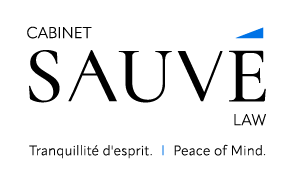Before You Print the Business Cards: Why Securing Your Business Name is a Critical Legal Step in Ontario
a plain-language guide to legally securing your business and/or corporate name
Starting a new business is an exhilarating journey. The initial days are a whirlwind of brilliant ideas, strategic planning, and boundless optimism. You craft a business plan, seek funding, develop your product or service, and begin to build your brand. Central to that brand is your business name—the banner under which you will build your reputation, connect with customers, and distinguish yourself in the marketplace. For many entrepreneurs, choosing a name feels like a purely creative exercise. But in reality, it is one of the most critical legal and financial decisions you will make.
Failing to properly search and register your business name in Ontario can do more than just cause administrative headaches; it can expose your new venture to significant legal risks, financial loss, and even the potential loss of your entire brand identity. At Cabinet Sauvé Law, we have seen firsthand how a lack of diligence at this foundational stage can unravel an otherwise promising enterprise. Our goal is to ensure this doesn't happen to you by providing the expert legal guidance needed to secure your name, protect your brand, and give you what you need most: Peace of Mind.
A Cautionary Tale: How a Name Can Be Lost
Imagine this scenario: An entrepreneur launches a local service business. They choose a clever, memorable name and pour years of hard work into building it. Their brand becomes well-known and trusted in the community. Business is booming, their vans are seen all over town, and their name is synonymous with quality. However, in their initial rush to get started, they overlooked one crucial step: they never formally registered their popular business name. They were operating as a corporation with a numbered name, and simply assumed that using their catchy trade name was enough.
One day, a competitor discovers this oversight. They conduct a formal search and find that the well-known trade name is legally available. The competitor registers the name for themselves, in full compliance with the law. Suddenly, the original business receives a formal notice to cease and desist from using the name. They are now legally barred from operating under the very brand they spent years building. They face a devastating choice: engage in a costly and uncertain legal battle, or abandon years of brand equity and start over from scratch with a new name, new marketing materials, and a lot of confused customers.
This isn't just a hypothetical nightmare. Variations of this scenario happen, and they highlight a critical vulnerability that can be avoided with proactive legal counsel
Understanding the Difference: Legal Name vs. Trade Name in Ontario
A common point of confusion for entrepreneurs is the distinction between a legal name and a trade name. Understanding this difference is fundamental to compliance in Ontario.
- Legal Name: This is the official name of the person or entity that owns the business.
- For a sole proprietorship, the legal name is the full name of the individual owner (e.g., Jane Doe).
- For a partnership, the legal name is the full names of all partners.
- For a corporation, the legal name is the one listed on its Articles of Incorporation (e.g., "JDG Holdings Inc." or "1234567 Ontario Inc.").
- Trade Name (or "Operating As" Name): This is any name a business uses that is different from its legal name. For example, if Jane Doe’s legal name is her business's legal name, but she publicly operates as "Angus Custom Cakes," then "Angus Custom Cakes" is her trade name. Similarly, if "1234567 Ontario Inc." operates as "Barrie Premium Roofing," the latter is its trade name.
Under Ontario’s Business Names Act, you are legally required to register any trade name you use. Failure to do so carries significant consequences:
- Inability to Sue: An unregistered business cannot maintain a proceeding in an Ontario court under its trade name. This means you cannot sue a client for an unpaid invoice or enforce a contract until you have registered.
- Fines and Penalties: The government can levy fines against businesses and individuals who fail to comply with the registration requirements.
- Brand Vulnerability: As our cautionary tale illustrates, an unregistered name is unprotected and can be registered by someone else, forcing you to stop using it.
The Search Is as Important as the Registration
Securing your business name is a two-part process, and the first part is arguably the most important: the search. Simply thinking of a name and finding it available on a government registration portal is not enough. A comprehensive search, guided by a legal professional, is essential to avoid future conflicts.
A proper search goes beyond a simple Google query. For a corporation, it involves obtaining a NUANS (Newly Updated Automated Name Search) report. This report searches federal and provincial corporate name databases and trademarks to identify names that are identical or confusingly similar to the one you want to use.
Why is this so critical? Choosing a name that is too similar to an existing business or trademark can lead to serious legal challenges:
- Trademark Infringement: You could be sued by the owner of a registered trademark if your name is likely to cause confusion in the marketplace. This can result in court orders to stop using the name and pay damages.
- Passing Off: Even if the other name isn't a registered trademark, you could be sued for "passing off." This occurs when your business name or branding misleads the public into believing your business is associated with another, more established one.
- Forced Rebranding: The most common outcome of a name dispute is being forced to change your name. This means losing all the investment you've made in your website, signage, marketing materials, and brand recognition.
A lawyer doesn't just run the search; they interpret the results. They can advise you on whether a name is too risky, if it’s legally defensible, and how to position your business to avoid future conflicts.
Why a Lawyer is Your Essential Partner in This Process
In the age of DIY solutions and online registration services, it can be tempting to handle your business name registration yourself to save money. However, these services are merely transactional—they file the forms you fill out. They do not and cannot provide legal advice.
A qualified corporate lawyer provides value that a simple form-filler cannot:
- Strategic Counsel: We help you think through the long-term implications of your name choice.
- Comprehensive Risk Assessment: We conduct thorough searches and interpret the results to advise you on the potential for legal challenges.
- Proper Structure and Filing: We ensure the registration is filed correctly under the right business structure (sole proprietorship, partnership, or corporation) and that it aligns with your overall corporate setup.
- Holistic Protection: We look beyond just the name. We can assist with incorporating the business, drafting shareholder agreements, and considering trademark registration to provide layered, comprehensive protection for your brand.
Your Registration Isn't Forever: The Importance of Maintenance
A business name registration in Ontario—often called a Master Business Licence—is not permanent. It must be renewed every five years. Forgetting this simple administrative task can have severe repercussions. If your registration expires, your business name is once again considered unregistered. This means you immediately face the same risks you did at the very beginning: you lose your legal right to sue under that name, and worse, the name becomes available on the public registry for anyone else to claim.
Letting a renewal lapse can undo all your initial hard work and re-expose your brand to the same dangers. This is another area where a legal partner provides immense value. When retained for corporate services, a law firm can manage your compliance calendar, tracking renewal deadlines and filing the necessary paperwork on your behalf. This ensures your legal status remains uninterrupted, allowing you to focus on running your business, not on administrative deadlines.
Don't Leave Your Most Valuable Asset to Chance
Your business name is more than just a label; it’s the embodiment of your hard work, your reputation, and your future. Protecting it from day one—and maintaining that protection—is one of the smartest investments you can make in your business.
The path of an entrepreneur is challenging enough without facing preventable legal roadblocks. Taking this step correctly provides the security and clarity needed to build your brand on solid ground.
Before you go any further, let's ensure your name is secure. Contact the experienced corporate law team at Cabinet Sauvé Law today for a consultation. Let us provide the expert guidance and diligent protection you need to build your brand with confidence and complete Peace of Mind.




